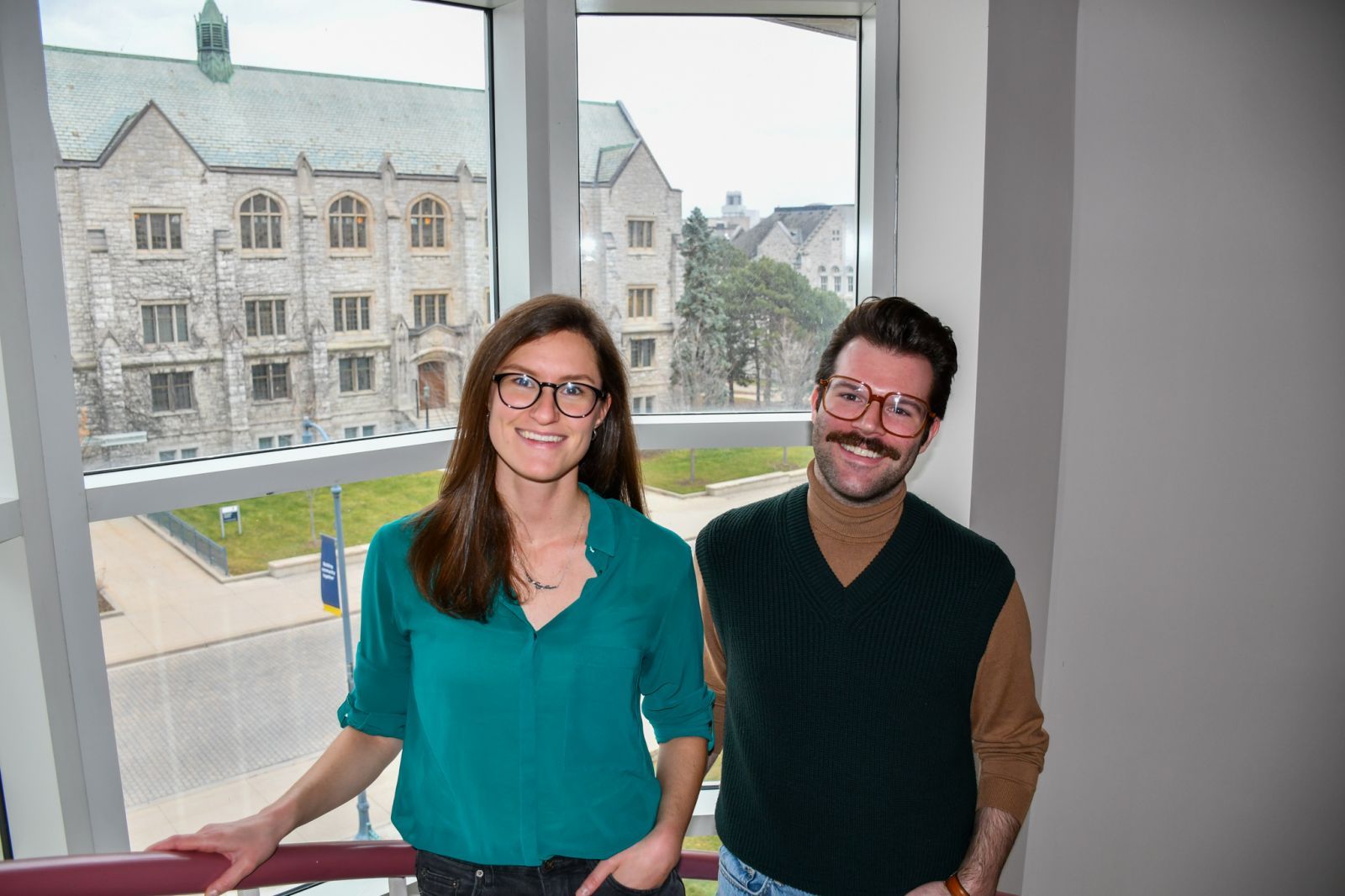
Grad Mentors Joanne Archibald and Jesse Gauthier.
Mentors Help Navigate Graduate Process
Now entering its fourth year, the Faculty of Arts and Science Grad Mentor program is a peer mentoring program that connects prospective students with current MA and PhD students to aid them in their decision-making process.
Prospective students can connect with a mentor (general or program specific) to chat about the application process, what student life is like, and and other questions they may have.
“This program is so valuable for not only our prospective students, but also our current student mentors,” says Warren Mabee Acting Associate Dean (Graduate Studies). “It provides our mentors each year with opportunities to grow their skill set, talk to prospective students, and connect with their current department.”
Joanne Archibald became a mentor to help prospective students determine if Queen’s is the right fit and to share what a graduate degree at Queen’s provides. While she didn’t have an official mentor, her PhD supervisor encouraged her to reach out to some of his former students which she says was invaluable in her choice to attend Queen’s.
“Reaching out really gave me a chance to understand the program from their perspective,” Archibald says, adding she loves to share her passion for history with her mentees. “I am not a conventional academic – I don’t intend to become a professor, and I took five years off between my MA and my PhD. I believe that highlighting alternative career choices is helpful for incoming graduate students, and showcasing these different outcomes widens the interest in pursuing graduate level study.”
Jesse Gauthier says he also wanted to bring the passion he has for FAS to graduate students. “New and prospective graduate students are electric; passion is infection, and prospective and new graduate students have it in spades. Also, it’s rewarding to meet with these students and help them turn their anxiety dial down and their excitement dial way, way up.”
Gauthier also didn’t have an official mentor but did benefit from the informal mentorship of a variety of people. “For example, Skylar Kovacs, a brilliant scholar and doctoral candidate in the Department of English, kindly walked me through what to expect from my comprehensive exams and offered to periodically check in and discuss what I’d been reading. I could go on and on, but it’ll suffice to say that I’ve been guided through every stage of graduate school by those who came before me.”
Sharing experience is key for mentors and Gauthier reflects on his experiences in FAS. “As a third-year PhD candidate, I have no shortage of stories to tell. On one end of the spectrum, I know what it’s like to worry about money and to fall short of my expectations for myself. On the other end of the spectrum, I’ve made amazing friends and have found a community of queer people that I did not have back home.”
Gauthier adds he is also passionate about what he wants for the students he is mentoring.
“I hope two things for them. First, I hope they feel less anxious. Second, I hope they are inspired to volunteer their time to support their friends and colleagues. I don’t want my mentees to be one of those folks who think that life starts after graduate school, so they abuse themselves with 60-hour work weeks and long periods of isolation. I want them to internalize that being unhappy won’t make them better graduate students.”
Dr. Mabee says matching students in similar life circumstances is critical as he hopes they can connect with the students who are looking into graduate school, on a more personal level.
“Our mentors provide us with the perfect opportunity for that. We find that students resonate with students, so in an effort to eliminate the fear of reaching out to departments and supervisors, our mentors do the initial work, allowing the prospective students to feel more comfortable when it comes time to apply and find a supervisor.”

